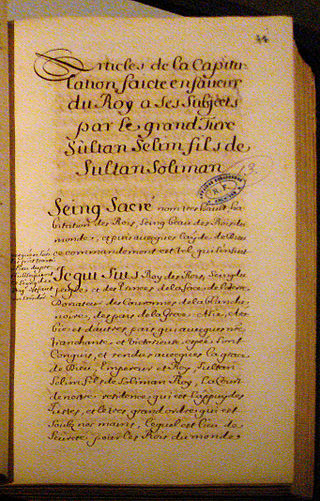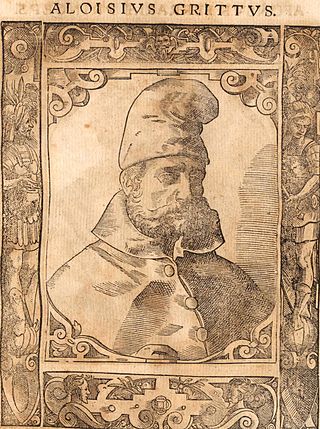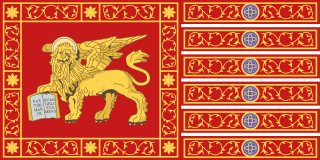
The Levant is an approximate historical geographical term referring to a large area in the Eastern Mediterranean region of West Asia. In its narrowest sense, which is in use today in archaeology and other cultural contexts, it is equivalent to Cyprus and a stretch of land bordering the Mediterranean Sea in western Asia: i.e. the historical region of Syria, which includes present-day Israel, Jordan, Lebanon, Syria, the Palestinian territories and most of Turkey southwest of the middle Euphrates. Its overwhelming characteristic is that it represents the land bridge between Africa and Eurasia. In its widest historical sense, the Levant included all of the Eastern Mediterranean with its islands; that is, it included all of the countries along the Eastern Mediterranean shores, extending from Greece in Southern Europe to Cyrenaica, Eastern Libya in Northern Africa.

The 16th century began with the Julian year 1501 and ended with either the Julian or the Gregorian year 1600 (MDC), depending on the reckoning used.

The Near East is a transcontinental region around the East Mediterranean encompassing parts of West Asia, the Balkans, and North Africa, including the historical Fertile Crescent, the Levant, Anatolia, East Thrace and Egypt. The term was invented by modern Western geographers and was originally applied to the Ottoman Empire, but today has varying definitions within different academic circles. The term Near East was used in conjunction with the Middle East and the Far East, together known as the “3 Easts”; it was a separate term from the Middle East during earlier times and official British usage. Today, the terms Near East and Middle East are used interchangeably to refer to the same region.

The Levant Company was an English chartered company formed in 1592. Elizabeth I of England approved its initial charter on 11 September 1592 when the Venice Company (1583) and the Turkey Company (1581) merged, because their charters had expired, as she was eager to maintain trade and political alliances with the Ottoman Empire. Its initial charter was good for seven years and was granted to Edward Osborne, Richard Staper, Thomas Smith and William Garrard with the purpose of regulating English trade with the Ottoman Empire and the Levant. The company remained in continuous existence until being superseded in 1825. A member of the company was known as a Turkey Merchant.

Capitulations of the Ottoman Empire were contracts between the Ottoman Empire and several other Christian powers, particularly France. Turkish capitulations, or Ahidnâmes were generally bilateral acts whereby definite arrangements were entered into by each contracting party towards the other, not mere concessions.
A chartered company is an association with investors or shareholders that is incorporated and granted rights by royal charter for the purpose of trade, exploration, or colonization, or a combination of these.

Sir Henry Lello was the English ambassador to the Ottoman Empire, Warden of the Fleet Prison, and Keeper of the Palace of Westminster. He was involved in peace negotiations with the Habsburgs and the Ottomans, as well as with the Venetian and French ambassadors regarding the trading activities in the Levant.
Sir Daniel Harvey was an English merchant and diplomat who was the English Ambassador to the Ottoman Empire from 1668 to 1672.

The Frankokratia, also known as Latinokratia and, for the Venetian domains, Venetokratia or Enetokratia, was the period in Greek history after the Fourth Crusade (1204), when a number of primarily French and Italian states were established by the Partitio terrarum imperii Romaniae on the territory of the dissolved Byzantine Empire.

The Franco-Ottoman alliance, also known as the Franco-Turkish alliance, was an alliance established in 1536 between Francis I, King of France and Suleiman I of the Ottoman Empire. The strategic and sometimes tactical alliance was one of the longest-lasting and most important foreign alliances of France, and was particularly influential during the Italian Wars. The Franco-Ottoman military alliance reached its peak with the Invasion of Corsica of 1553 during the reign of Henry II of France.
The Marocco Company or Barbary Company was a trading company established by Queen Elizabeth I of England in 1585 through a patent granted to the Earls of Warwick and Leicester, as well as forty others. When she wrote the patents, Elizabeth emphasized the value of the region's "divers Marchandize... for the use and defence" of England.

The siege of Corfu in 1537 was led by the Ottoman Emperor Suleiman the Magnificent, against the Republic of Venice-held island of Corfu. It is part of the Ottoman–Venetian War (1537–1540), one of the numerous Ottoman–Venetian Wars of the period.

Alvise Gritti was a Venetian politician. He was influential in the Hungarian Kingdom under the reign of King John I of Hungary. He was also a minister of the Ottoman sultan, and regent of Hungary from 1530 to 1534. He was the natural son of Andrea Gritti, the Venetian Bailo of Constantinople during the reign of Sultan Bayezid II and who later became the Doge of Venice in 1523.

The English overseas possessions, also known as the English colonial empire, comprised a variety of overseas territories that were colonised, conquered, or otherwise acquired by the former Kingdom of England during the centuries before the Acts of Union of 1707 between the Kingdom of England and the Kingdom of Scotland created the Kingdom of Great Britain. The many English possessions then became the foundation of the British Empire and its fast-growing naval and mercantile power, which until then had yet to overtake those of the Dutch Republic, the Kingdom of Portugal, and the Crown of Castile.

The Ionian Islands were an overseas possession of the Republic of Venice from the mid-14th century until the late 18th century. The conquest of the islands took place gradually. The first to be acquired was Cythera and the neighboring islet of Anticythera, indirectly in 1238 and directly after 1363. In 1386 the Council of Corfu, which was the governing body of the island, voted to make Corfu a vassal of Venice. During the Venetian period the Council remained the most powerful institution on the island. A century later, Venice captured Zante in 1485, Cephalonia in 1500 and Ithaca in 1503. These 3 islands modelled their administration on Corfu's model and formed their own councils. The conquest was completed in 1718 with the capture of Lefkada. Each of the islands remained part of the Venetian Stato da Màr until Napoleon Bonaparte dissolved the Republic of Venice in 1797. The Ionian Islands are situated in the Ionian Sea, off the west coast of Greece. Cythera, the southernmost, is just off the southern tip of the Peloponnese and Corfu, the northernmost, is located at the entrance of the Adriatic Sea. It is believed that the Venetian period on the Ionian Islands was generally prosperous, especially compared with the coinciding Tourkokratia — Turkish rule over the remainder of present-day Greece.
Pasqua Rosée was a 17th-century servant who opened the first coffee-house in London and possibly Britain. He was born into the ethnic Greek community of the Republic of Ragusa. In 1651 he became the servant of Daniel Edwards, an English merchant of the Levant Company who was living in Smyrna in the Ottoman Empire; Rosée's duties included preparing and serving Edwards's daily coffee.
The European consuls in the Ottoman Empire began as informal relationships between merchants residing in the Empire and the Sultan. The relationships were defined by the ahdname granted by the Sultan which would stipulate the religious freedom and exemption from the taxes that non-Muslim subjects had to pay. The religious implications of these relationships diminished over time as the commercial aspects took over.
The Imperial Privileged Oriental Company was a state-organized Austrian trading company at the time of Charles VI. 1719 to 1740.
The Swedish Levant Company was a Swedish chartered company founded on 20 February 1738 with the exclusive right to trade in the Levant for a period of ten years.
Sir Edward Holmeden or Holmden (1544–1616) was an Alderman and Sheriff of London.











